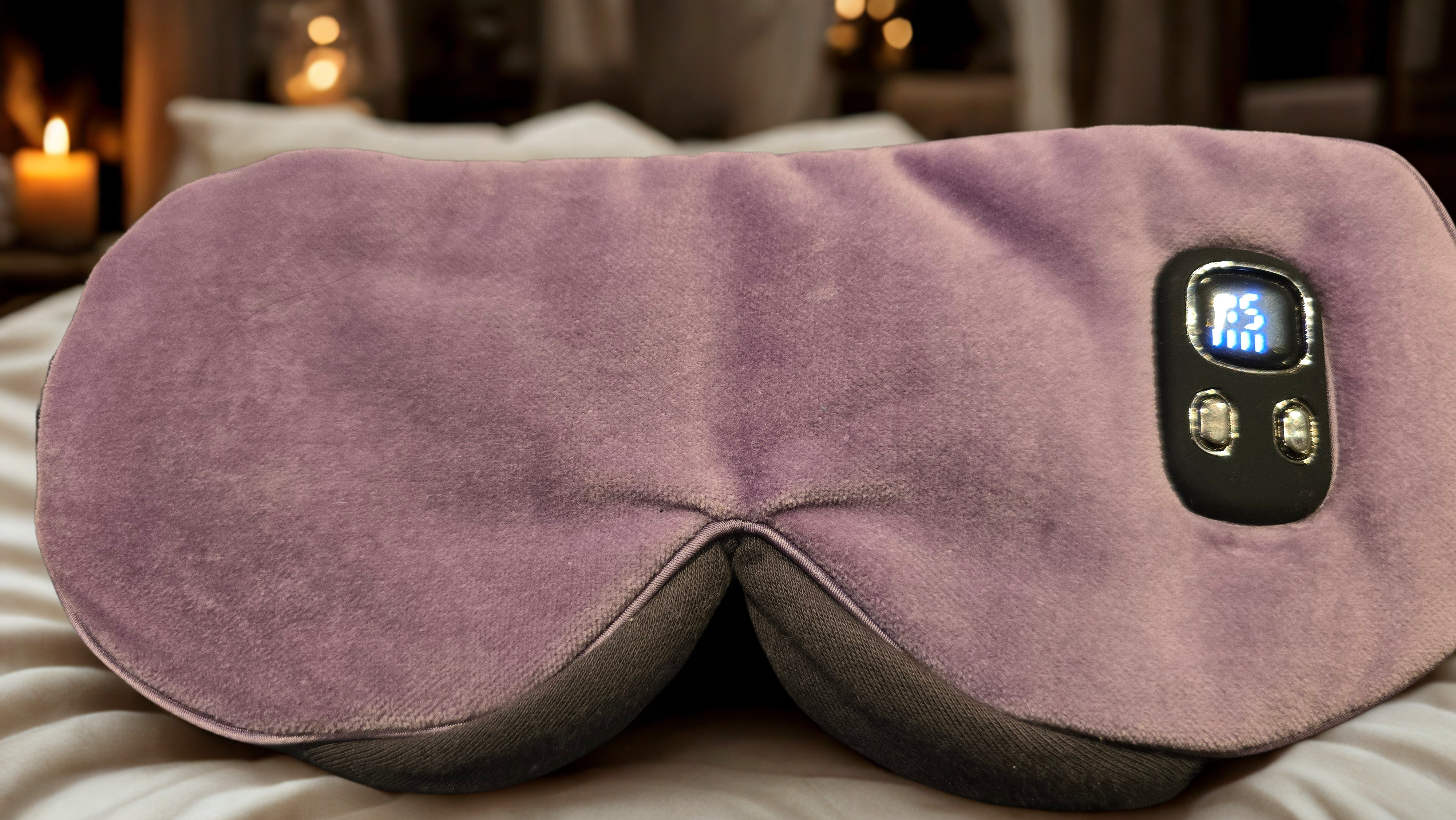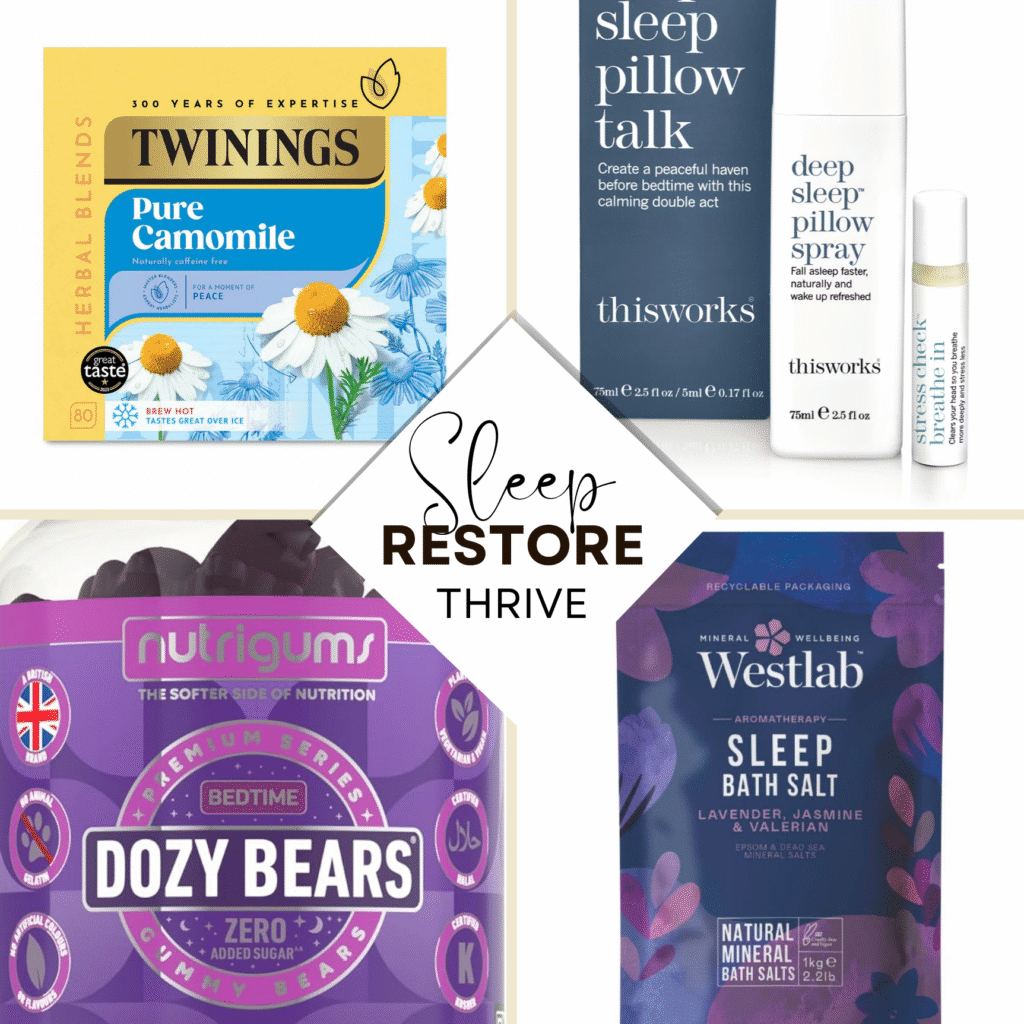
For as long as I can remember, sleep has been an uphill battle. I have ADHD, and once the menopause hit about eight years ago, everything became worse. Nights turned into long, restless stretches of tossing and turning, watching the hours disappear. Like many people in the same situation, I ended up relying on prescription sleeping tablets, not because I wanted to, but because they were the only thing that worked.
Recently, I’ve been searching for a gentler alternative. The side effects of sleeping tablets add up over time, and I wanted to feel like I had more control over my sleep, not less. That’s when I began researching sleep gummies.
They’ve become hugely popular in recent years, usually marketed as a more natural way to fall asleep. Some contain melatonin (although it can only be obtained on prescription in the UK or by buying online from elsewhere). In contrast, others rely on herbal ingredients such as chamomile, lemon balm, magnesium, and amino acids like L-theanine. I was sceptical at first, could something that tastes like sweets really help with chronic insomnia?
To my surprise, the answer so far has been… sort of, yes.
I’m not completely off sleeping tablets, but I’ve managed to halve the dose I take, and that’s a big deal for me. I’ve been trying different gummies to find the one that works. Some nights, they help me wind down in a way that sleeping tablets never could. Not a knockout effect, but a sense of quietness settling in my brain, which, for someone with ADHD, is rare and very welcome.
That said, sleep hygiene advice like “stick to a bedtime routine” is easier said than done when you have ADHD. Time blindness means I genuinely don’t notice hours passing. One minute it’s 8 PM, and I’m thinking about maybe starting to wind down, and suddenly it’s 1 AM, and I have no idea how I got there, let alone what happened to my plan to get to bed early. So while the experts recommend routine, in reality, that’s often out the window for me.
Still, I’ve noticed something encouraging: I’m having more “good nights” than I used to. Even on evenings when the routine goes off track, if I remember to take a gummy at some point, I’m less likely to lie awake for hours. There’s something gentler and more forgiving about them, especially compared to the heavy knockout effect of prescription meds.
Of course, not all gummies are created equal. I’ve had a few that did absolutely nothing, and others that gave me weird dreams or a mild headache the next morning. It’s definitely a case of trial and error, and if you’re trying them for the first time, it’s worth paying attention to the ingredients, timing, and how your body responds.
I’m still early in this journey, and I wouldn’t say I’ve found the perfect solution yet. But for the first time in years, I feel like there’s a bit of hope. I’m no longer completely reliant on tablets. I’ve got another option, something to reach for on the nights where sleep feels just out of reach, without feeling like I’m drugging myself into unconsciousness.
If you’re someone who struggles with sleep, especially if you have ADHD, or menopause has turned your nights upside down, then sleep gummies might be worth trying. They’re not a miracle, and they’re certainly not a replacement for everything else that affects sleep. But they can be a small, helpful part of the puzzle. And sometimes, that’s all we need, just a little help, one night at a time.
Below is my nightly box of tricks:
This is my Favourite bit of Kit and highly recommended for my fight against not just Dry Eye but insomnia
Read more about Dry eyes here

“As an Amazon Associate, we earn a small commission from qualifying purchases at no extra cost to you. Your support helps us continue providing great content!
